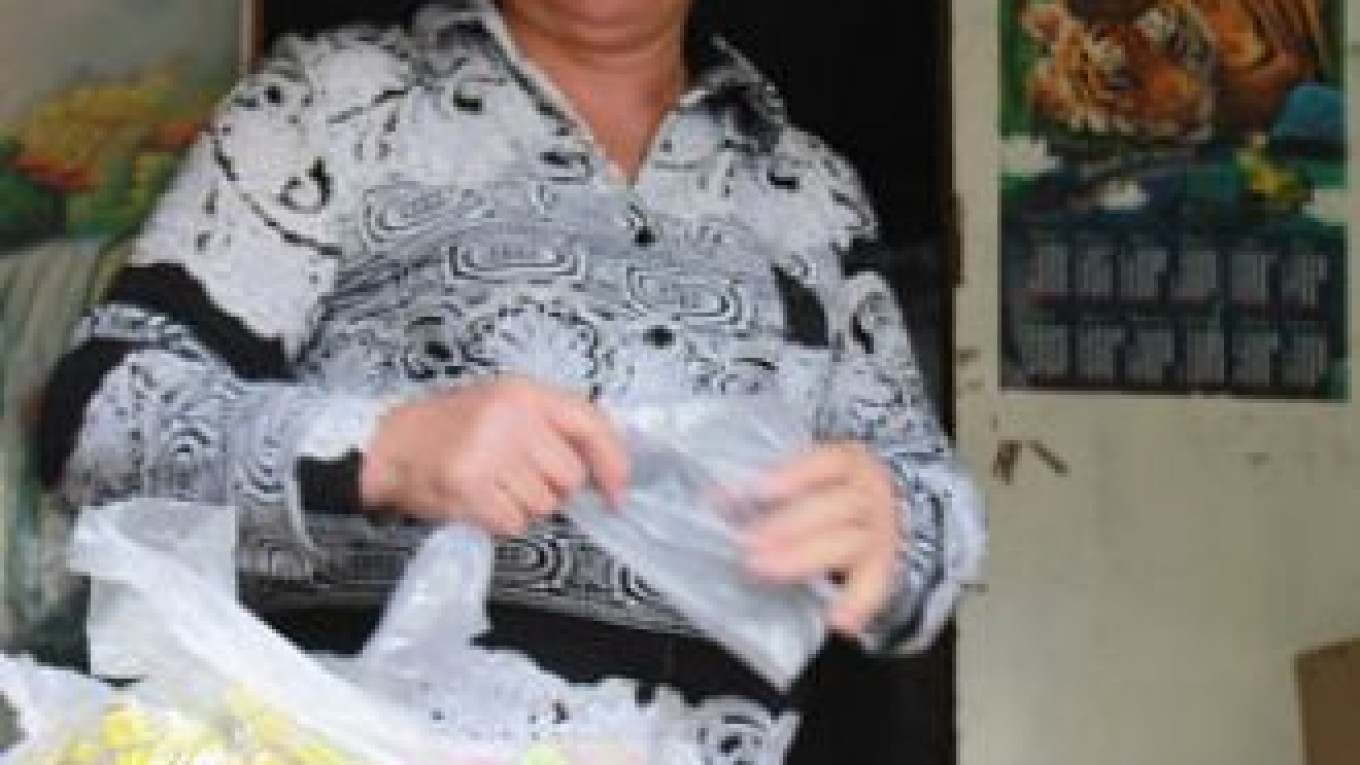BISHKEK, Kyrgyzstan — If the Soviet Union ever had a Sun Belt like the United States, then this small Central Asian republic would definitely be part of it.
The climate in the Kyrgyz capital, Bishkek, offers moderately hot summers and mild winters. The city is nestled amid green pastures just in front of the towering snow-peaked Tian Shan Mountains.
The sun brought some Russians to Kyrgyzstan during Soviet times. Soviet dictator Josef Stalin exiled many others here as well.
But now some members of the dwindling ethnic Russian community are looking to leave after witnessing two violent uprisings in five years, the most recent last month when anti-government protests turned violent and police opened fire on demonstrators outside the presidential palace. At least 85 people died in the shootings and the violence that followed.
Dasha Goncharova, 26, who works as a waitress in one of the capital's hotels, said she plans to leave the country of her birth and move with her family to the city of Lipetsk, about 400 kilometers south of Moscow.
"We decided to move because many of my relatives are there already. We feel that it will be safer for us," she said.
Many other Russians and members of other ethnic minorities interviewed in Bishkek recently expressed worries about the future, including with regard to the 40-day mourning ceremonies held Monday for those killed in the April 7-8 uprising.
While the day passed quietly, with interim Kyrgyz leader Roza Otunbayeva laying flowers at a stone commemorating the uprising's dead, the country saw a new wave of violence late last week when supporters of ousted President Kurmanbek Bakiyev seized control of government buildings in three southern regions. Bakiyev has fled to Belarus, and the country is now being run by the interim government formed by members of the hitherto divided opposition.
"We all fear that things will get unstable again," said Tamara, who was selling candy out of a truck from a local confectionary factory.
Tamara, whose parents were Azeri and Meskhetian, a Turkic group deported from Georgia under Stalin, said she had nowhere to go. "I was born here, and I will stay here," she said. "Hope dies last."
Despite the widespread unease, this sentiment was shared by others in Bishkek.
Sasha Shmakov, a computer science student, said that while many of his ethnic Russian friends had left or were planning to move, he had no such plans.
"I also wanted to leave, but you need to have a place where you can go to," he said, adding that he is the only ethnic non-Kyrgyz in his university class.
Speaking to a reporter while waiting for the city's central department store to open, Shmakov, 18, pointed to the blue sky and birds singing in the sun. "In principle, life is not bad here," he said.
The number of Russians in Kyrgyzstan dropped from 21.5 percent of the population in 1989 to just 8.4 percent in 2009, according to official statistics. The exodus was strongest during the 1990s but continued through the last decade, when numbers dropped from about 600,000 in 1999 to 440,000 last year.
Yet Bishkek remains a largely Russian-speaking city, and ethnic Russians notably continue to hold most management positions in private-sector companies.
The new constitution proposed by the interim government also grants privileges to the Russian language, making it an "official language," while Kyrgyz is the state language.
Mikhail Mikhailovich, a businessman who would only give his first name and patronymic, said it was deplorable that no one felt responsible for the country's ethnic Russians. "All sorts of minute nationalities have their organized community, but the Russians have nothing," he said.
Speaking in an outdoor cafe in one of Bishkek's numerous leafy parks, Mikhail said he was not afraid of the future.
“We lived through the Soviet period and the lawless 1990s. We lived through [President Askar] Akayev's government, survived its downfall and the Tulip Revolution. We lived through Bakiyev and this latest violence. Why leave now?” he asked.
A Message from The Moscow Times:
Dear readers,
We are facing unprecedented challenges. Russia's Prosecutor General's Office has designated The Moscow Times as an "undesirable" organization, criminalizing our work and putting our staff at risk of prosecution. This follows our earlier unjust labeling as a "foreign agent."
These actions are direct attempts to silence independent journalism in Russia. The authorities claim our work "discredits the decisions of the Russian leadership." We see things differently: we strive to provide accurate, unbiased reporting on Russia.
We, the journalists of The Moscow Times, refuse to be silenced. But to continue our work, we need your help.
Your support, no matter how small, makes a world of difference. If you can, please support us monthly starting from just $2. It's quick to set up, and every contribution makes a significant impact.
By supporting The Moscow Times, you're defending open, independent journalism in the face of repression. Thank you for standing with us.
Remind me later.


